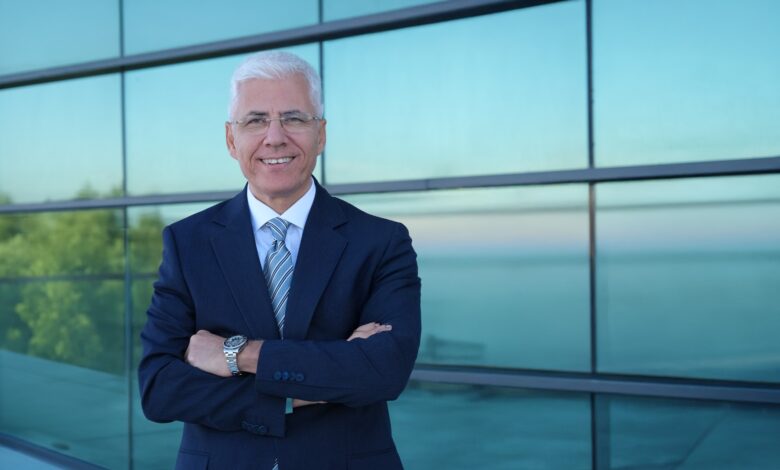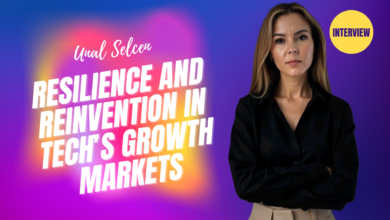Low-Code, AI and Local Talent Are Driving the Middle East’s Digital Leap: Bimser

In this exclusive interview, Murat Atıcı, CEO of Bimser, explains how the company’s low-code, AI-driven platforms are helping Middle Eastern governments and enterprises leapfrog legacy systems and accelerate digital transformation. He discusses the unique opportunities and challenges of the region, the sectors adopting Bimser’s solutions fastest, the rise of AI-augmented decision-making, and how initiatives like the Bimser University R&D Programme are building local skills and innovation capacity for a new era of enterprise software.
Bimser has been expanding rapidly in the Middle East. What unique opportunities and challenges do you see in this market compared to other regions?
The Middle East presents both dynamic opportunities and unique challenges. Governments and enterprises are investing heavily in digital transformation, creating fertile ground for innovation. Unlike mature markets where legacy systems dominate, many organizations here are starting their digital journeys with a relatively clean state—allowing them to leapfrog outdated technologies and embrace modern platforms faster. The challenge lies in navigating diverse regulatory frameworks, ensuring compliance, and scaling local talent. That said, our regional presence enables us to stay close to customers, partners, and policymakers, co-creating solutions that truly fit local needs.
Many businesses here are still early in their digital transformation journey. How does Bimser’s low-code, AI-driven platform help them leapfrog traditional barriers?
Our Synergy Low-Code Platform is built precisely for this. Traditional enterprise software projects are often long, costly, and heavily dependent on scarce IT talent. With Synergy, organizations can design and deploy applications quickly, with minimal coding skills. AI integration further accelerates adoption—automating workflows, enabling multilingual interfaces, and providing intelligent recommendations. This means companies achieve measurable results in weeks or months rather than years, scaling seamlessly as their digital maturity grows. In short, we help them bypass complexity and cost, and focus directly on outcomes.
What sectors in the Middle East are adopting Bimser’s solutions most quickly, and why?
Digital transformation is reshaping every sector, from government to education, healthcare, and industry. Ambitious agendas such as Saudi Vision 2030 and the UAE’s digital government program are pushing organizations to modernize quickly, with governance, compliance, and efficiency at the core.
In asset-intensive industries like energy, manufacturing, oil & gas, and chemicals, the priority is operational excellence, predictive maintenance, and reliability. Our platforms—bEAM, Synergy, and QDMS—help unify processes, extend asset lifecycles, ensure quality, and reduce downtime, delivering tangible ROI even under volatile market conditions.
In service-oriented sectors like healthcare, food & beverage, and education, efficiency and compliance are paramount. Hospitals already use Bimser solutions to improve patient outcomes, food producers rely on them to balance cost, quality, and consumer demand, while universities leverage them to modernize governance and meet international accreditation standards.
The common denominator across all these industries is the need for robust, flexible platforms that integrate seamlessly with existing systems and deliver fast, measurable results.
How do you see low-code and AI shaping enterprise software in the next 3–5 years, especially in this region?
Low-code and AI are no longer optional—they’re becoming the foundation of enterprise innovation. Over the next 3–5 years, I see three key shifts:
- Democratisation of development — empowering employees beyond IT to contribute directly to digital transformation.
- AI-augmented decision-making — AI won’t replace people but will empower them with deeper insights, predictions, and risk assessments.
- Faster localisation and compliance — particularly critical in the Middle East, where AI can automate compliance and adapt applications to local regulations.
Given the region’s ambitious national strategies, adoption here will likely outpace global averages.
With AI advancing rapidly, how is Bimser balancing automation with the need for human oversight and compliance?
For us, automation must always go hand in hand with trust. Our platforms, such as QDMS and QGRC, embed governance, risk management, and compliance directly into workflows. AI enhances efficiency—whether through risk detection or multilingual automation—but final decision-making remains with people. We believe technology should augment human judgment, not replace it.
Can you tell us more about the Bimser University R&D Programme — how does it connect academia with real-world business needs?
The Bimser University Programme is a bridge between academia and industry. Our R&D teams collaborate with universities on emerging technologies like AI, IoT, and sustainability-driven solutions, then apply these innovations to real-world customer projects. This creates a continuous pipeline of fresh talent, new ideas, and applied innovation. For students, it means hands-on experience with enterprise challenges; for us and our customers, it means staying ahead of technological shifts.
The region is investing heavily in local talent. How does Bimser see itself contributing to skills development and knowledge transfer here?
We view talent development as both a responsibility and an opportunity. Our low-code approach democratizes technology by enabling employees—even without deep coding expertise—to design and deploy applications. Beyond that, we invest in training, certification programs, and partnerships with universities and training institutes. Our goal is not just to deliver technology, but to help cultivate sustainable digital skills that strengthen the region’s competitiveness long-term.
Are there plans for partnerships with governments or large enterprises to accelerate digital adoption at scale?
Yes, absolutely. We already collaborate with leading enterprises across energy, healthcare, and manufacturing. Looking ahead, we are actively engaging with government bodies and public sector organizations to accelerate adoption across entire ecosystems. By working hand in hand with policymakers and industry leaders, we aim to create model projects that set benchmarks for efficiency, compliance, and citizen-centric services.
If you had to pick one big bet Bimser is making for the future, what would it be?
Our big bet is to become a global leader in AI-powered enterprise platforms. With solutions like Synergy for process automation, bEAM for asset management, and QDMS for quality and compliance, we’re not only addressing today’s digital needs but preparing organizations to thrive in a world where agility and intelligence define competitiveness.
Our strategy is to embed AI and low-code capabilities into everything we do—helping businesses, universities, and public institutions digitize faster, innovate continuously, and achieve measurable efficiency gains. This positions Bimser not just as a software provider, but as a trusted partner in shaping intelligent, sustainable enterprises worldwide.




